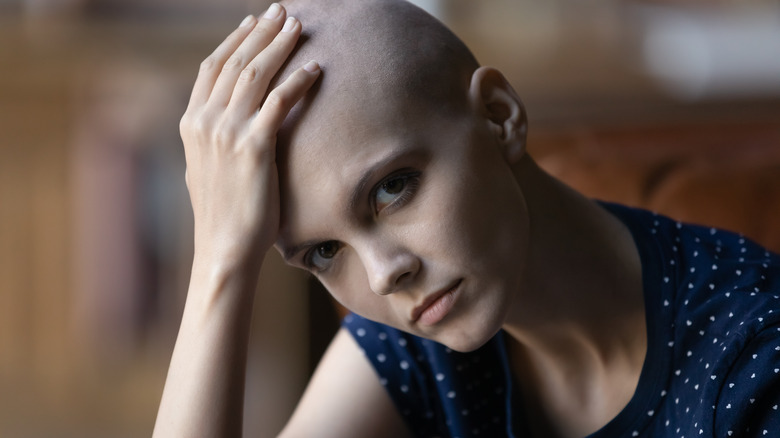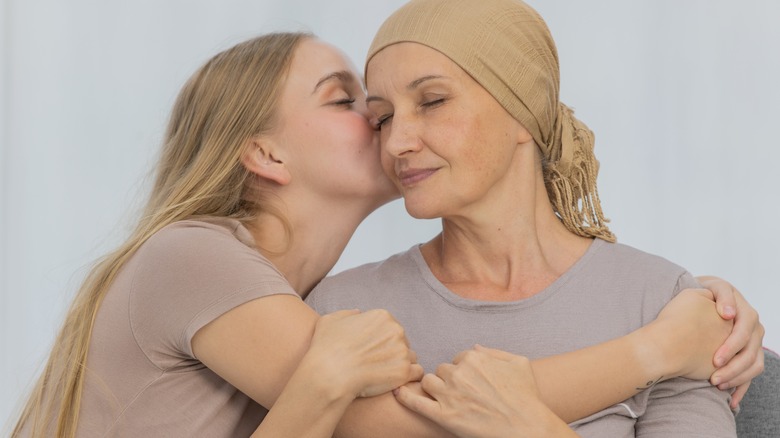What Chemotherapy Really Does To Your Immune System
Currently, there is no cure for cancer, but the American Cancer Society considers chemotherapy one of the most effective treatments. The first chemotherapy treatment was developed during World War II from nitrogen mustard, a chemical related to mustard gas (via American Cancer Society). Subsequent research led to the first instance of curing metastatic cancer in 1956 using methotrexate.
Today, doctors use a combination of chemotherapy drugs to treat many types of cancer tumors orally, intravenously, or by injection. According to the Pan American Health Organization (PAHO), these drugs work by killing rapidly-dividing cancer cells.
However, chemo drugs also harm white blood cells, which are the body's main driver of immune function (per Better Health Channel). With fewer white blood cells, the immune system is less able to fight off infections and viruses. A weaker immune system makes patients more prone to infections after receiving chemotherapy. If an infection does set in, it is harder for the body to defeat.
Some chemotherapy drugs act primarily on cancer cells and white blood cells in bone marrow, weakening the immune system while destroying cancer cells (per American Cancer Society). Others attack cancer (and white blood cells) in the lymphatic system since cancer cells often invade the lymph nodes after breaking away from a tumor, says Cancer Research UK.
WebMD says chemotherapy's systemic approach may cause more side effects than treatments like radiation. Cancer Research UK notes that more severe symptoms may occur with chemotherapy than with radiofrequency ablation (RFA).
How to boost your immune system after chemotherapy
The Memorial Sloan Kettering Cancer Center recommends several ways to protect your immune system while receiving chemotherapy. Big ways to boost immunity include prioritizing good quality sleep, drinking plenty of water, and moving your body with low-impact routines like walking or yoga.
Eating a variety of healthy whole foods, including fruits, veggies, and protein, can help keep your immune system balanced and strong. Ask your doctor if you could use a vitamin D supplement. Vitamin D is critical to bone health and supports disease-fighting T-cells and macrophages, but many people don't get enough from food.
If patients experience chemo symptoms, cannabinoids (CBD) could help. A 2021 study in Biomolecules found that non-psychoactive CBD can help relieve chemotherapy's toxic side effects. The study also found that CBD helps patients heal more quickly after surgery and can even help reverse chemoresistant cancers. CBD is legal and available over the counter everywhere.
It's important to remember chemotherapy is an aggressive treatment that can be fatal and is not a one-size-fits-all solution (via Telegraph). Care should be taken when deciding whether chemotherapy poses more of a benefit or risk to any individual. "I think it's important to make patients aware that there are potentially life-threatening downsides to chemotherapy," Professor David Dodwell of the Institute of Oncology at St James Hospital told the Telegraph. "And doctors should be more careful about who they treat with chemotherapy."


